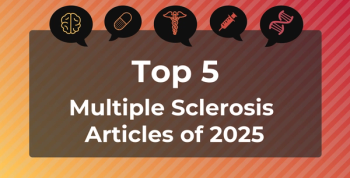
Feasibility of Implementing a Tailored Exercise Program for Black Patients With Multiple Sclerosis
Background
Physical activity, particularly exercise, is an important rehabilitation strategy for patients with multiple sclerosis (MS). Data suggest that the majority of patients with MS do not participate in sufficient amounts of physical activity to reap health benefits. Research investigating levels of exercise in patients with MS has demonstrated that black patients, who generally have a more aggressive disease course and increased comorbidities, engage in less physical activity compared with white patients. Adapting health improvement initiatives based on cultural sensitivities may help increase acceptance of such programs.1
In a previous feasibility study, the researchers evaluated the efficacy of the Guidelines for Exercise in Multiple Sclerosis (GEMS) program, a home-based, 4-month exercise program designed for all patients with MS without specific tailoring based on race. The GEMS program incorporated social cognitive theory (SCT) principles of behavior change. Components of the GEMS program included aerobic and strength exercise sessions, behavioral coaching, and supplemental SCT support. The results of the study demonstrated that GEMS was a safe and feasible exercise program that significantly increased patient time spent exercising as measured by the Godin Leisure Time-Exercise Questionnaire (GLTEQ). The current study evaluated the feasibility of an adapted version of the original GEMS exercise program that included racial tailoring modifications.1
Methods
This study enrolled black MS patients 18 to 64 years of age who were “non-exercisers,” as measured by a health contribution score (HCS) of 23 or less on the GLTEQ. Participants had to be asymptomatic and free from relapses within the previous 30 days. Internet access was required throughout the course of the study as assessments were completed online. The Exercise Neuroscience Research Laboratory database was used to identify potential participants (N = 129).1
The modified GEMS exercise program was evaluated in 4 domains1:
- Process feasibility, which evaluated recruitment and retention,
- Resource feasibility, which examined communication and monetary costs,
- Management feasibility, which explored data management and safety reporting, and
- Scientific outcomes, which assessed safety, burden, adherence, experience, and the treatment effect of the intervention.
Results
Baseline Demographics
The mean age of the patients in the study was 51.6 years, with a mean disease duration of 15.7 years. The majority of patients were female (94%) and had relapsing-remitting MS (87%). Comorbidities reported by patients included diabetes, hypertension, and high cholesterol. The mean baseline GLTEQ HCS score was 1.6 ± 3.4.1
Feasibility and Scientific Outcomes
Based on the data analysis and survey results, the modified GEMS exercise program was feasible, safe, and well received.1
Process feasibility: A total of 32 patients were sent a link to the baseline assessment and exercise program; of these, 31 patients completed the baseline testing and 24 patients completed the study and post-assessment.1
Resource feasibility: Total costs associated with implementing the exercise program were $3726.57. This included personnel costs ($2128.74) and exercise program costs ($1597.83). The mean cost per patient was $46.93.1
Management feasibility: The time to receipt of approval for the study from the University of Illinois institutional review board was 15 days. A total of 102 hours of personnel time was needed for study completion; this total included time for discussions among investigators, recruitment preparation, recruitment calls, administrative costs, behavioral coaching calls, external auditor calls, and data entry/reconciliation.1
Scientific outcomes: Patient experience was measured from feedback surveys taken by 14 participants. Eighteen patients completed the required online log books. Of the 48 documented exercise sessions for these 18 patients, 70% of the sessions were adhered to fully and 23% were adhered to partially. Data from the remaining 7% of the exercise sessions were either not completed or not reported. At the end of the study, mean GLTEQ scores increased to 26.0 ± 22.9. These results demonstrated a significant effect over time (P <.001). During the study, 3 patients reported an increase in MS-related symptoms: 1 patient experienced an increase in fatigue and 2 patients reported an increase in both fatigue and walking impairment. Worsening of symptoms did not lead to discontinuation of the exercise program. No other adverse outcomes related to the exercise program were reported.1
Conclusion
To the authors’ knowledge, this feasibility study is the first to evaluate the delivery of a patient-informed and racially tailored exercise program to black patients with MS in the United States. The results of this study support the feasibility, acceptability, safety, and efficacy of this intervention for increasing exercise behavior in black adults with mild-to-moderate MS.
Reference
1. Kinnett-Hopkins D, Motl R. Results of a feasibility study of a patient informed, racially tailored home-based exercise program for black persons with multiple sclerosis. Contemp Clin Trials. 2018;75:1-8. doi: 10.1016/j.cct.2018.10.009.
Newsletter
Stay ahead of policy, cost, and value—subscribe to AJMC for expert insights at the intersection of clinical care and health economics.









